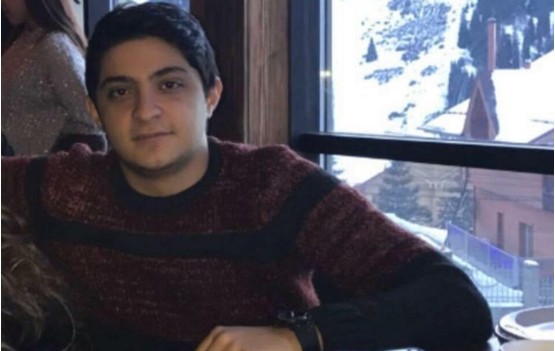An Israeli student was killed in clashes in Kazakhstan on Friday, the Israeli Foreign Ministry reported on Saturday, the day the country’s president ordered forces to use lethal fire amid anti-government protests. Levan Kogeashvili, 22, had been living in Kazakhstan in past two years, a Foreign Ministry statement said. He was killed by live fire in Almaty, the country’s biggest city.

Levan Kogeashvili, 22, the Israeli student who was killed in Kazakhstan on Friday (Photo: Family)
Kogeashvili’s family said he was travelling in a car on his way to work when he was shot, adding that the young man was not involved with the mass protests against the dictatorship.
Kazakhstan’s president Kassym-Jomart Tokayev authorized security forces on Friday to shoot to kill those participating in unrest, opening the door for a dramatic escalation in a crackdown on anti-government protests that have turned violent. In a televised address to the nation Tokayev used harsh fascist rhetoric, referring to those involved in the turmoil as “terrorists,” “bandits” and “militants” — though it was unclear what led the peaceful protests to first gather steam and then descend into violence. “I have given the order to law enforcement and the army to shoot to kill without warning,” Tokayev said. “Those who don’t surrender will be eliminated.”
Concerns grew in recent days that an even broader crackdown might be coming, as internet and cellphone service was severely disrupted and sometimes totally blocked, and several airports closed — making it difficult to know what was happening inside the country and for images of the unrest to reach the outside world.
According to Marie Struthers, Amnesty International’s Director for Eastern Europe and Central Asia: “The protests unfolding in Kazakhstan, which have turned violent, are a direct consequence of the authorities’ widespread repression of basic human rights. For years, the government has relentlessly persecuted peaceful dissent, leaving the Kazakhstani people in a state of agitation and despair.”
“Instead of threatening to crack down on protesters, the Kazakhstani authorities must resolve the situation peacefully by immediately and unconditionally releasing all those who have been arbitrarily detained and addressing past abuses committed by the state. Protesters accused of internationally recognized crimes for violent actions should be provided with fair trials in accordance with international human rights law,” she said.
Adding to those fears was Tokayev’s request for help from a Russia-led military alliance, the Collective Security Treaty Organization, whose troops began arriving Thursday. Curfews remained in place in cities, and Tokayev tweeted on Friday night that “the counter-terrorist operation continues in our country,” with police, the National Guard and the armed forces carrying out “large-scale and well-coordinated work to restore law and order.”
The Central Asian nation this week experienced its worst street protests in the last three decades, and hundreds have been killed in the tumult. The demonstrations began over a near-doubling of prices for a type of vehicle fuel and quickly spread across the country, reflecting wider discontent with authoritarian rule. According to Zo Haderech, Communist weekly in Hebrew, the reasons of the large-scale workers’ strikes and people’s demonstrations in Kazakhstan are high prices, unemployment, poverty, misery, and other major social problems to which the capitalist system has led millions of people 30 years after the dissolution of the USSR.
Zo Haderech website said that leftists forces in Kazakhstan are demanding: “The release of all protesters detained by the police, as well as the release of all political prisoners; the abolition of all anti-union and anti-labor laws, which have outlawed hundreds of trade unions in recent years, in an effort to allow the government control the labor–trade union movement and the legalization of the Socialist Movement of Kazakhstan and the Communist Party of Kazakhstan, which have been banned by the country’s authorities.”


